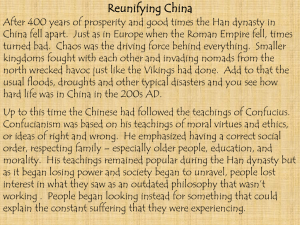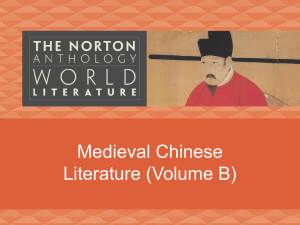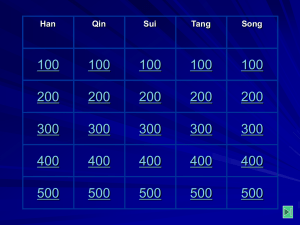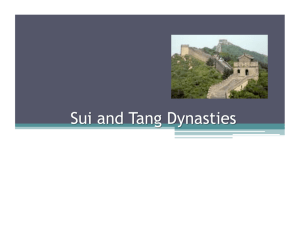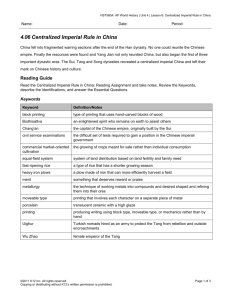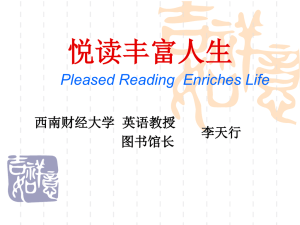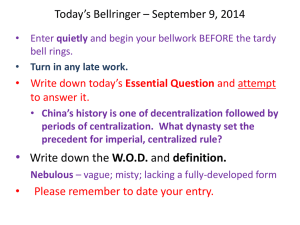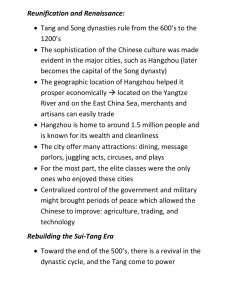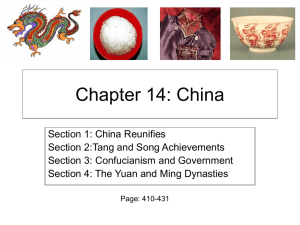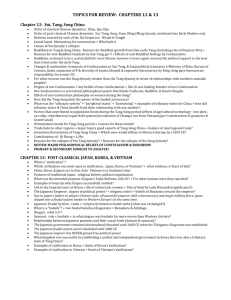Key Terms * The Tang Dynasty
advertisement
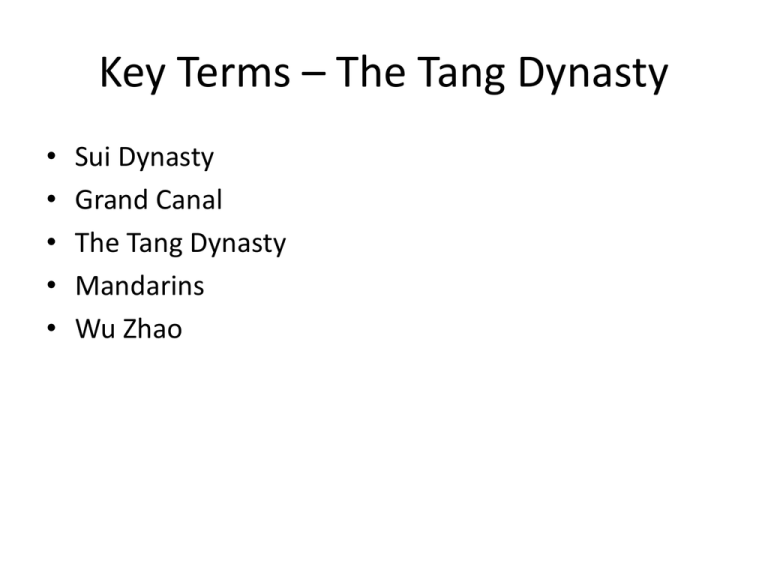
Key Terms – The Tang Dynasty • • • • • Sui Dynasty Grand Canal The Tang Dynasty Mandarins Wu Zhao Sui Dynasty (581-618) • Sui Dynasty first Chinese dynasty after the Three Kingdoms Period of China • Installed many new public works changes and governmental changes. • Installed a land redistribution program intended to boost agricultural production – Failed due to oppressive taxes that forced people to give up their crops and work excessive hours away from their land. The Grand Canal • The Sui rulers sought to unite the capital of China (Chang’an) in the North to the agricultural territories in the south. • The Sui rulers would construct the Grand Canal. – Would link northern China to the economically productive southern areas near the Yangtze. Problems with the Sui • The massive public works projects undertaken by the Sui undermined the social changes they had installed. • The Sui undermined their land re-distribution system by forcing their peasants to work on the Grand Canal and the Great Wall. • The Sui also wasted large amounts of wealth by attempting to conquer territories to the north such as Korea and Manchuria. to finance these ventures, the government charge 10 years of taxes upfront. The Tang Dynasty • Li Yuan would lead a rebellion to remove Yang Ti, the last Sui emperor and start the Tang Dynasty. • Tang Dynasty ruled from 618-907, introduced major reforms to ease the burden on peasants. Tang Dynasty Reforms • Tang rulers did not attempt to undertake large public works projects to prevent strain on the economy. • The Tang were successful in their expansion as they were able to acquire Korea and Tibet. • Chinese would use Korea as a cultural bridge to Japan would observe and influence Japan through Korea. • Chinese would also go back to using Silk Road which would help give rise to a stronger merchant class. Tang Achievements • Set up an effective bureaucracy government was broken into departments of business, justice, finance, transport and education. • Made use of the civil service exam system to hire officials this was not present since the Han. • Those who would pass these exams would be known as Mandarins • Scholars wrote more encyclopedias and kept better records than previous dynasties. • Poetry and literature became more prevalent, wood block printing became available. Wu Zhao • Wu Zhao one of the first female emperors of China. • Encouraged agriculture and silk production. • Lowered taxes and reduced the responsibilities of the lower classes • Would be deposed in 705 and die soon after. Fall of the Tang • In 907, the Tang Dynasty ended and the country reverted back to disunity. • Provinces governed themselves and foreign invaders acquired power within China.
